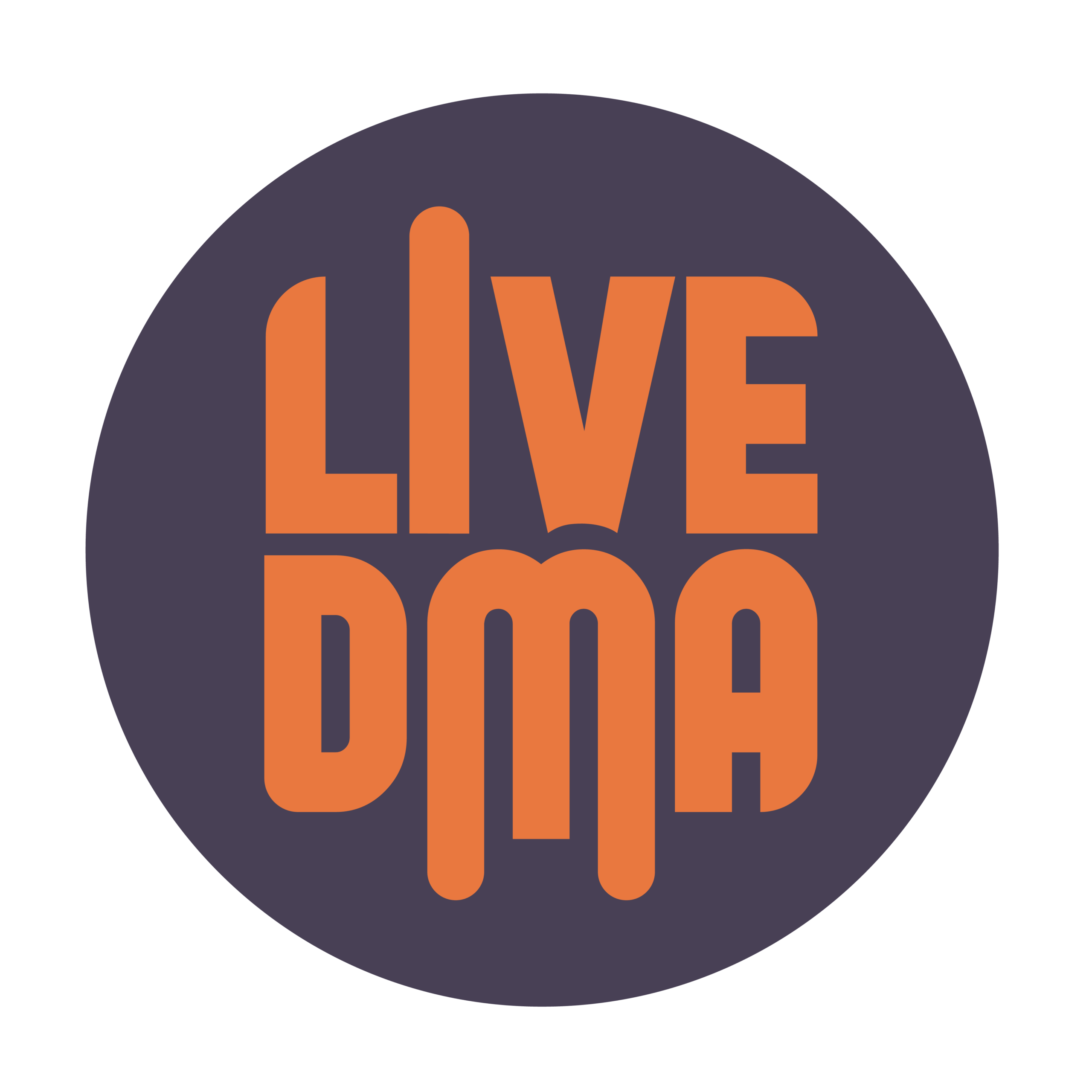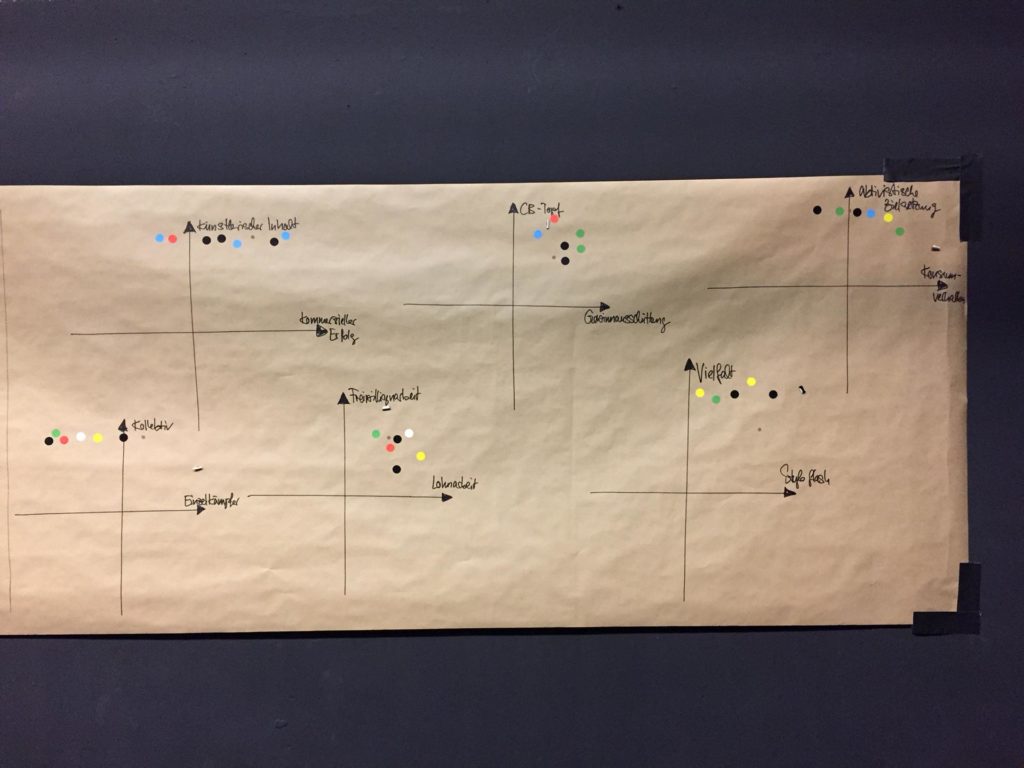Ethic charters, guidelines, manifestos, special programmes or mission statements are a great way of developing humane policies around the values communities would like to see in society.
By making explicit their values, live music scenes commit to them. They state who they are and who they are going to be for the next years. They offer their communities an alternative vision of the world and invite them into it.
This page offers some background information on the values of live music scene that Live DMA defends on a European level. It also gives concrete examples from venues, clubs and festivals of our network on how values can be formalised in a manifesto, charter, mission statement, etc.
Venues, clubs and festivals from the Live DMA network share their own policy!
Click on the images below to discover how some of the venues, clubs and festivals from the Live DMA network are asserting and enacting their values.
European live music scenes hold strong values
Live music scenes play a crucial cultural, social and economic role. Through diverse business and structural models, they work in a not-for profit manner and for the general interest of their communities. They are run by live music experts (either paid or voluntary) who work as cultural activists within their communities.
The Live DMA Survey publication 2020 highlights the social, cultural and economic relevance of live music scenes, notably in terms of audience reach, employment, artistic development and diversity of functions, as shown in the two images below.

Live DMA’s definition of “venues, clubs and festivals” as written in our glossary also sheds light on the different values that live music scenes embody:
“A music venue or club is any location used for a concert or other musical performance. They range in size, business models and genres. The venues, clubs and festivals Live DMA represents have a cultural and social role and are the backbone of the live music sector. Venues, clubs and festivals have an organisational and cultural focus on music: programming music is their main purpose and music experts (paid or volunteers) run the organisation. They are important in the local sphere and they encourage the next generation of young cultural activists to step in the live music sector. They take risks with their cultural programmes as they programme artist that deserve audiences with no expectation of direct financial benefits. By supporting artists and providing the necessary resources for talent development, they build the strong foundation of the music sector. Live DMA highlights that these are small to medium sized locations that are mainly non/not for profit and focus on programming popular music.”
Venues, clubs and festivals are often so called “the grassroots”. Although Live DMA agrees with the definition of this term, Live DMA does not use it as it refers to a very specific historical background and cultural movement that might exclude certain typologies of venues, clubs, and festivals represented by the European network. Yet, the definition of a grassroots music venue as written by Music Venue Trust confirm that live music scenes are valuable for individuals and communities:
“We’re not talking about an arena here, or a concert hall. A Grassroots Music Venue (GMV) is the compact basement room beneath a pub, it’s the community hall with the blacked-out windows, it’s the converted Victorian swimming baths. They aren’t like a national chain of coffee shops or supermarkets, where one size fits all and the interiors, fixtures and fittings look broadly the same. Each one is as different as the locations they’re set in and the people who run them, but they have far more in common than what separates them.“
This is confirmed when you read the reasons behind the decision to open a (grassroots) music venue, as depicted in the heartfelt testimonies collected by Music Venue Trust.
European live music scenes enact their values
Live Music Scenes are cultural, social and political activists. They try to change the world with live music, either one event at a time or by applying their values and principles within their overall policy and spheres of action.
Writing an official document is a way of committing and enacting an organisation’s values. This document can take many forms: a manifesto, a charter, an explicative drawing, a mission statement…
Read our interview with the managing director of Folken (NO), to discover how they created their own manifesto and to get advice if you want to do a similar process.
A great tip is to anchor your manifesto/charter/overall policy document in collective texts defending human rights and cultural rights. Get inspired by these texts:
- Universal Declaration on Human Rights (United Nations – 1948)
- The Convention on the Protection and Promotion of the Diversity of Cultural Expressions (UNESCO – 2005)
- Fribourg Declaration on Cultural Rights (Fribourg Group – 2007)
- Porto Santo Charter | Culture and the Promotion of Democracy: Towards a European Cultural Citizenship (Portuguese Presidency of the Council of the European Union – 2021)
What about you? Share your manifesto, ethic charter, mission statement and other policy documents with us at contact@live-dma.eu






















